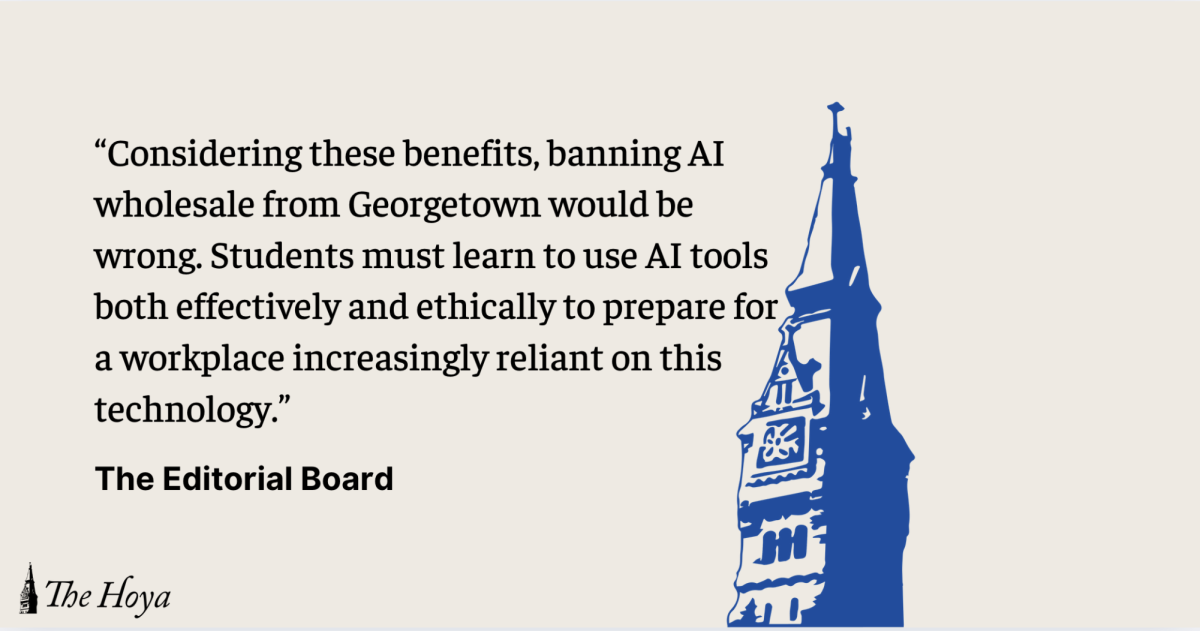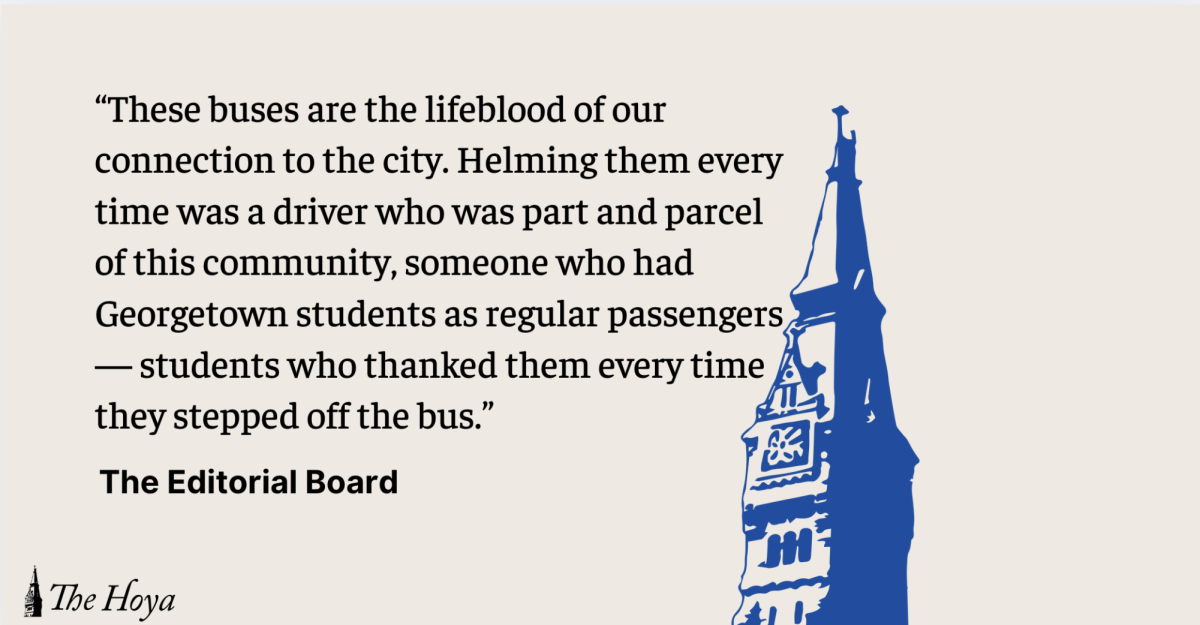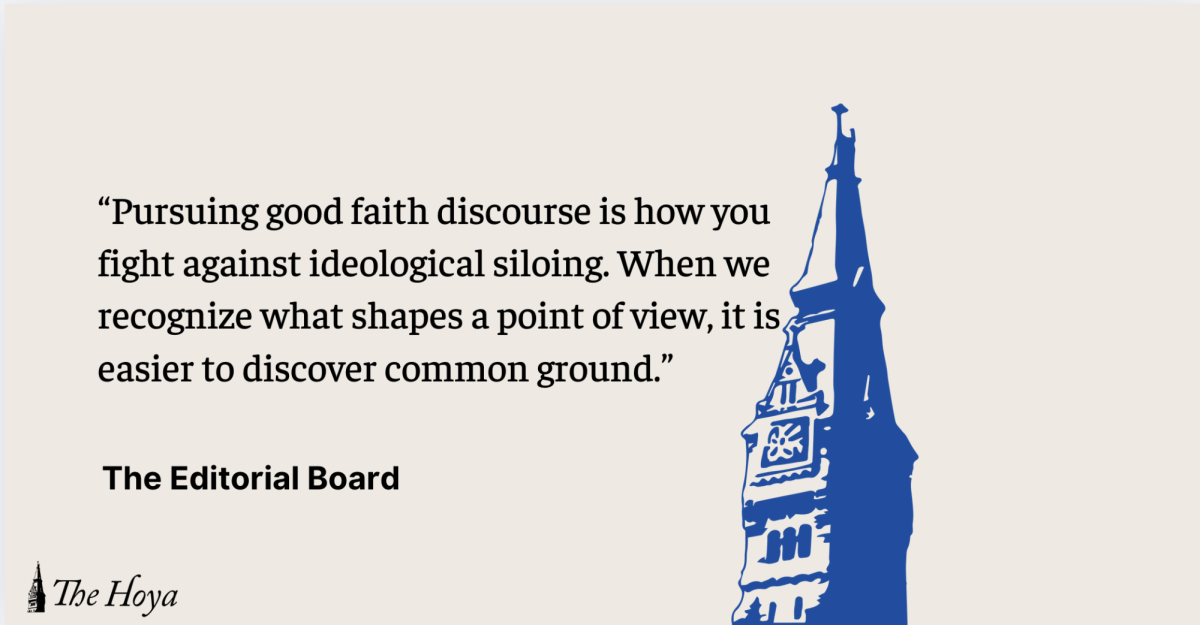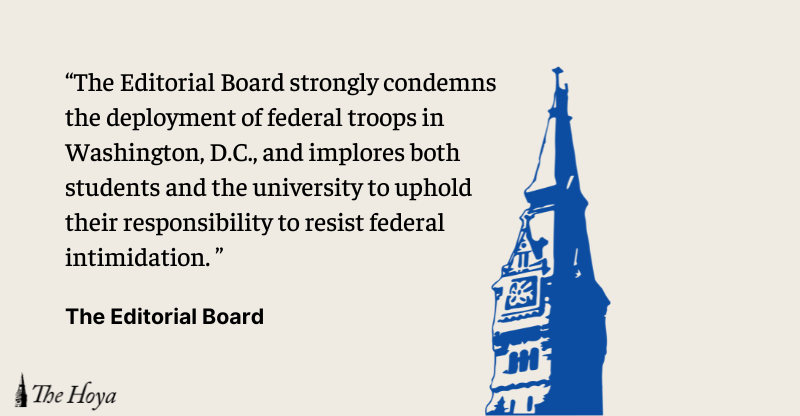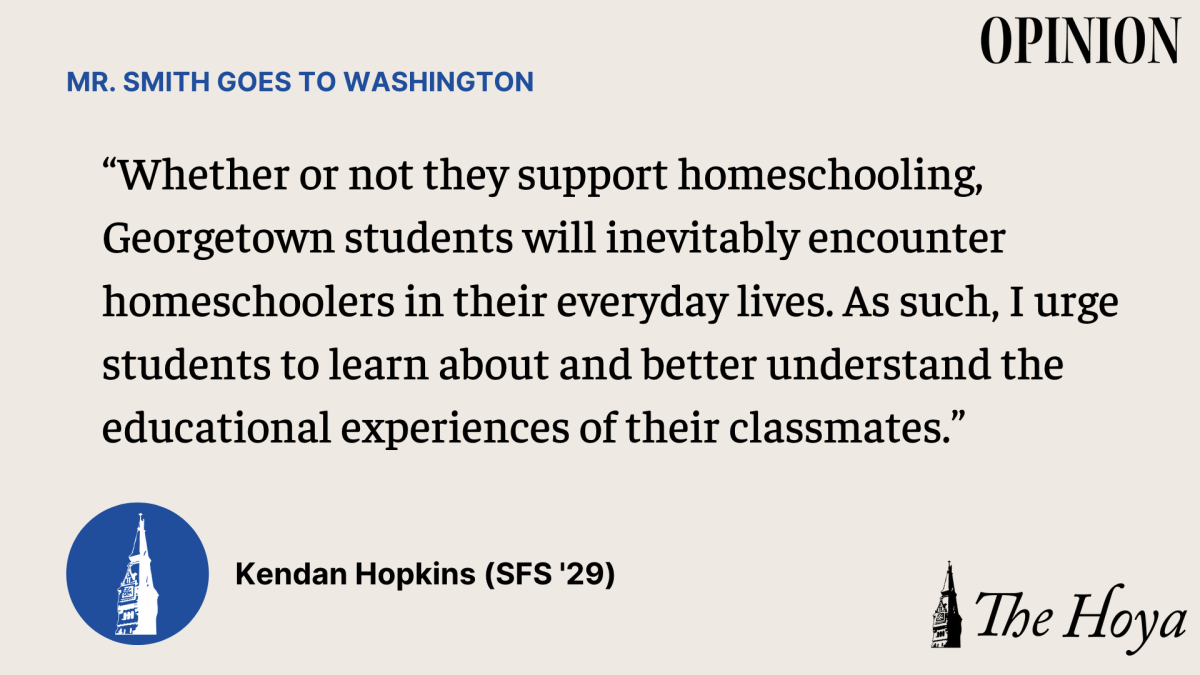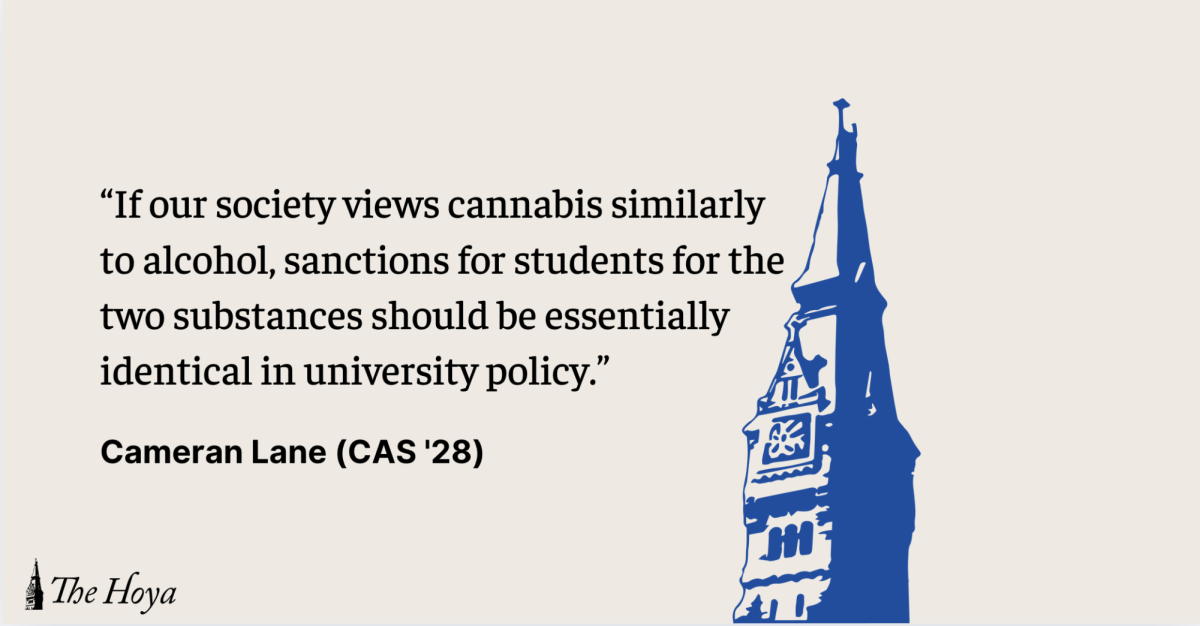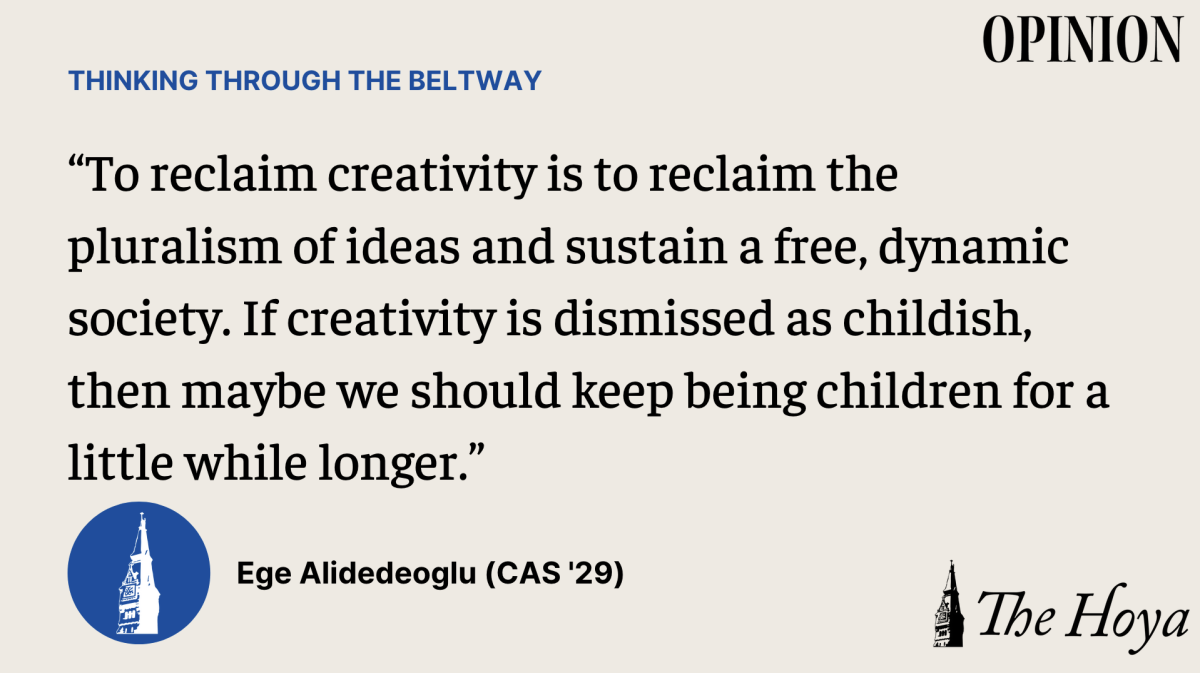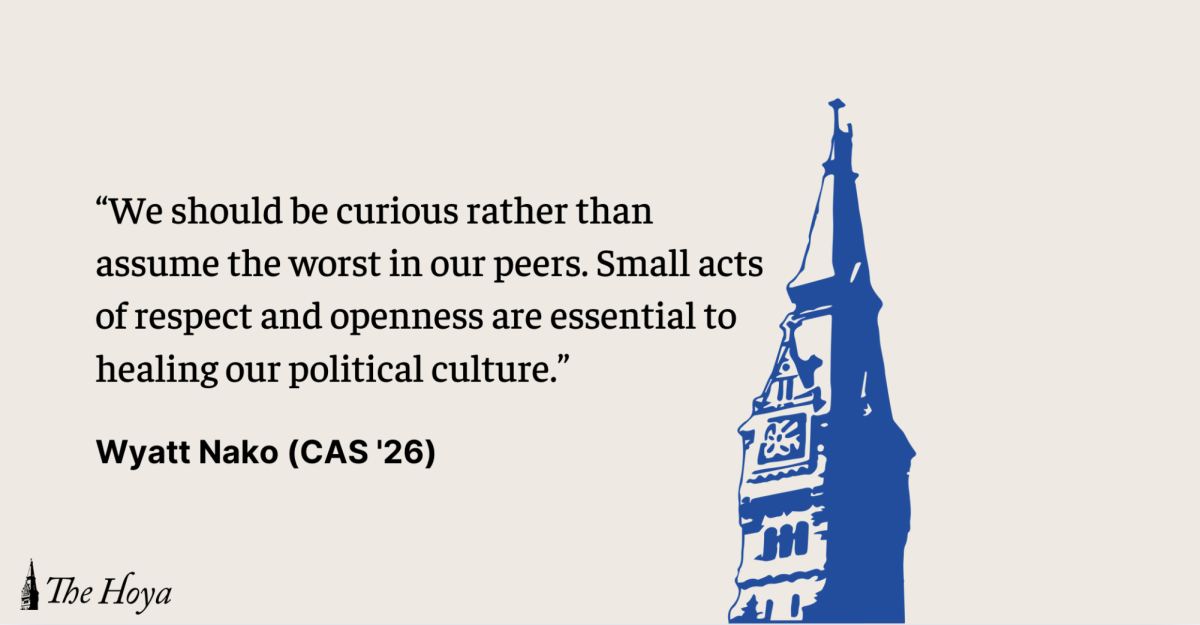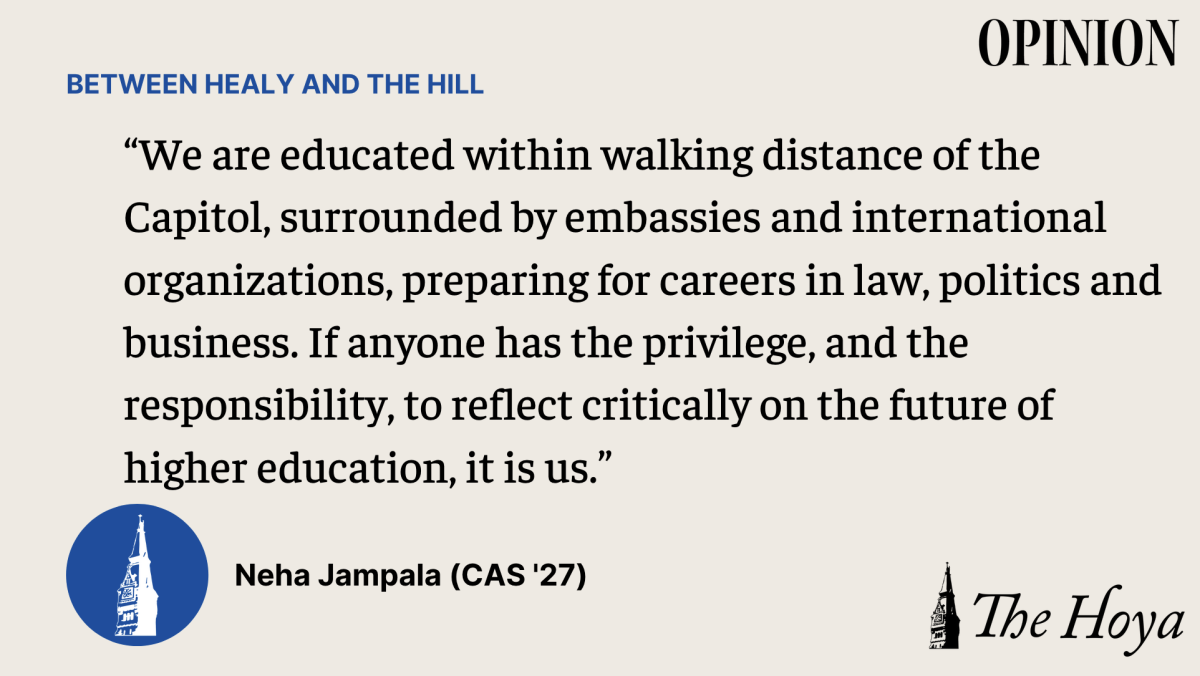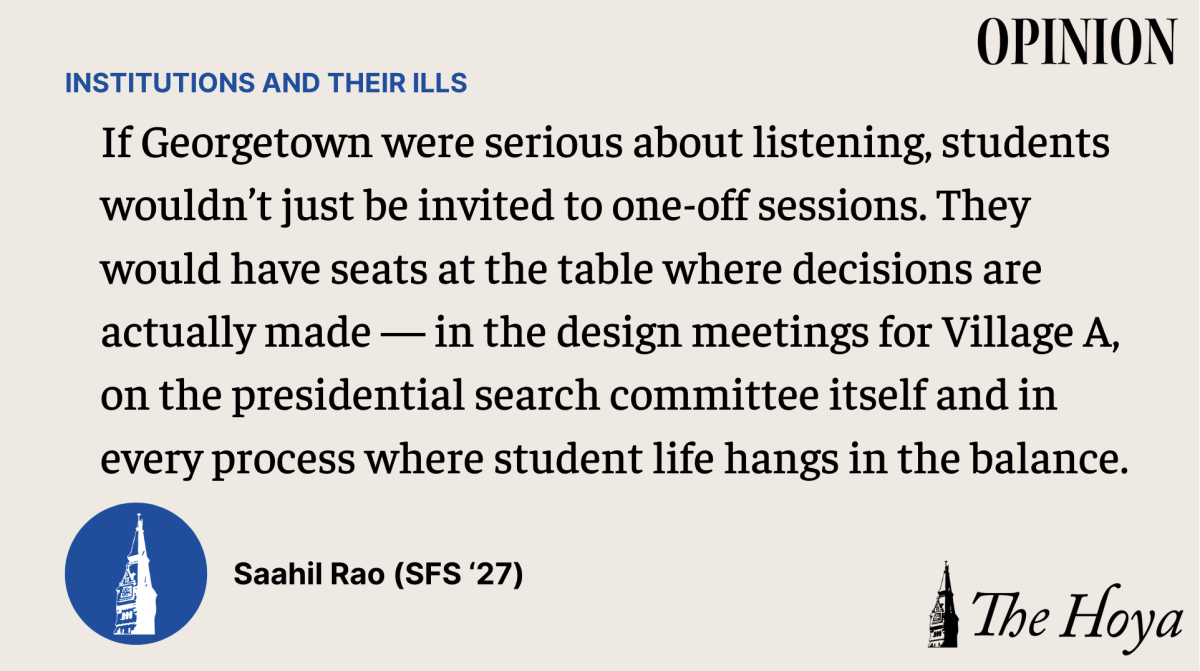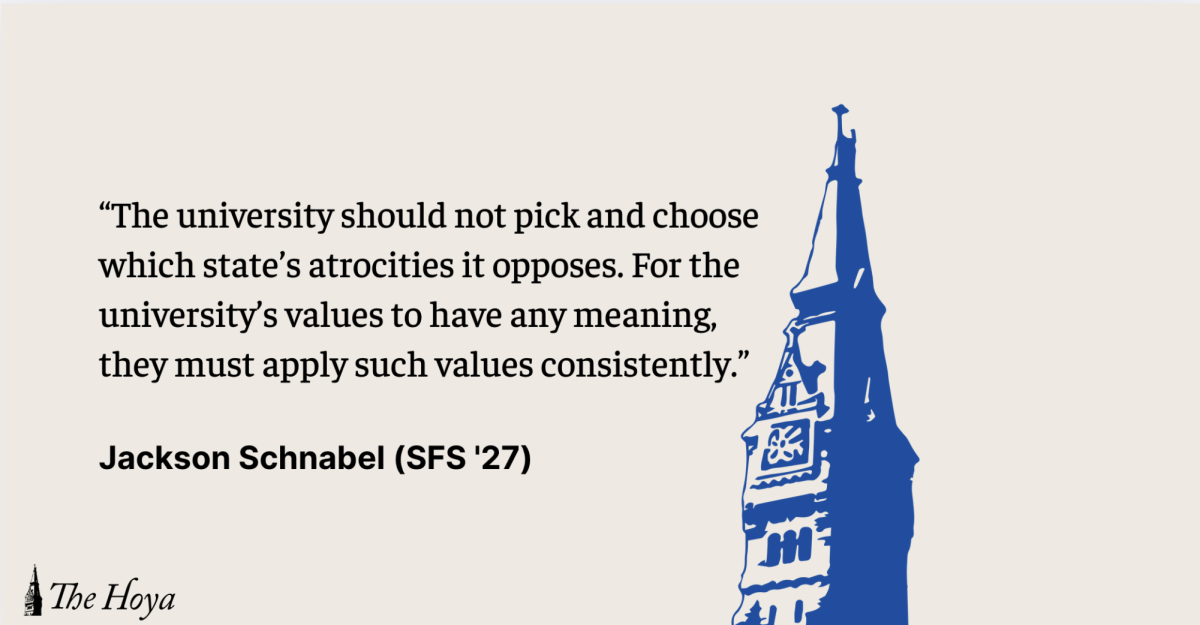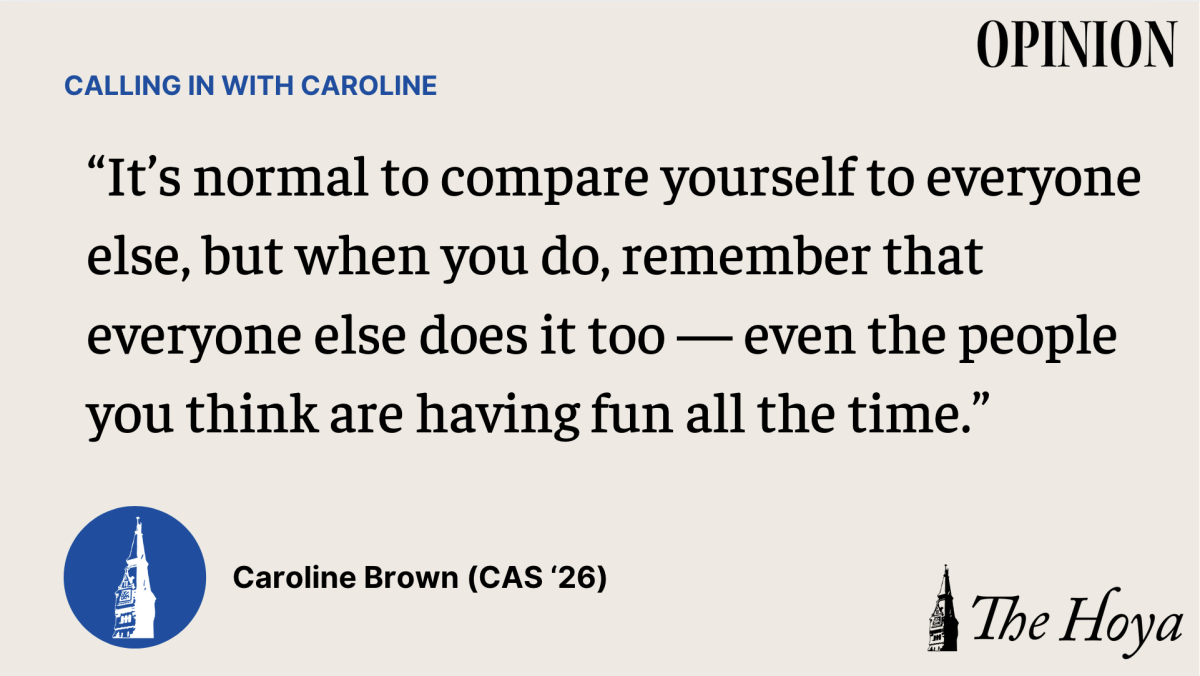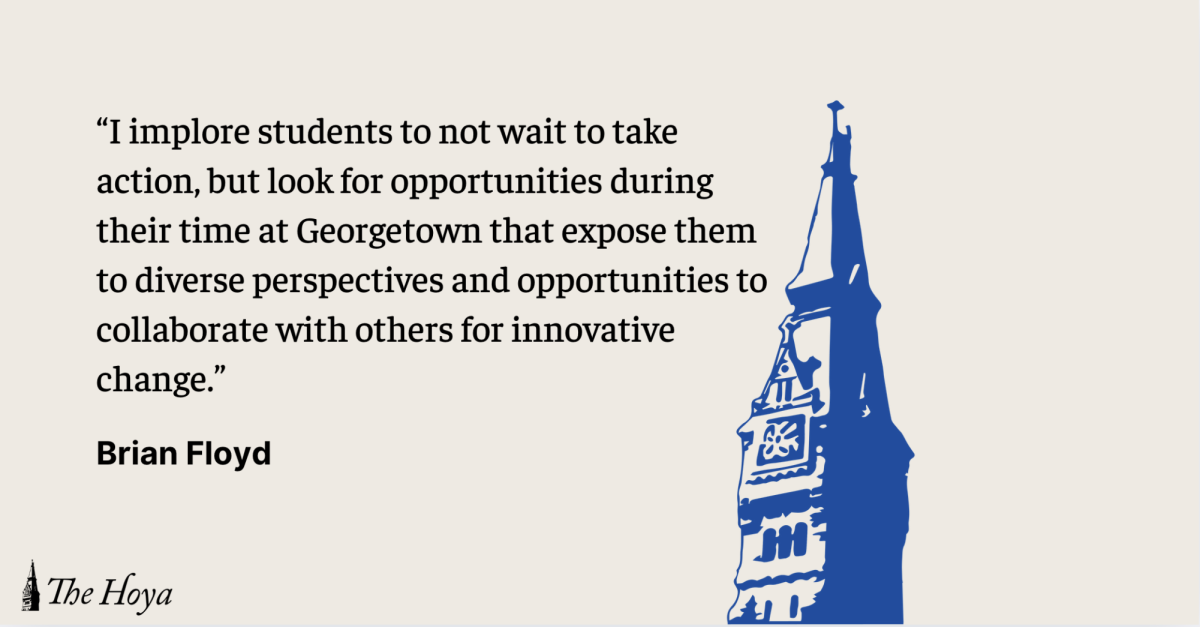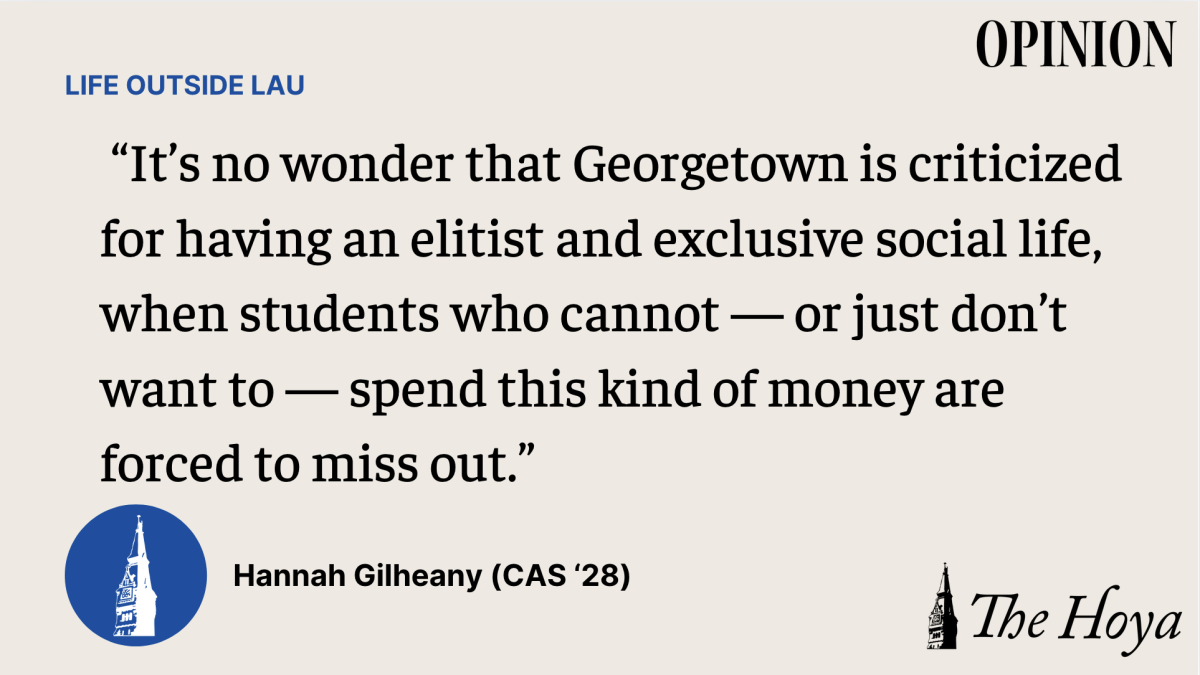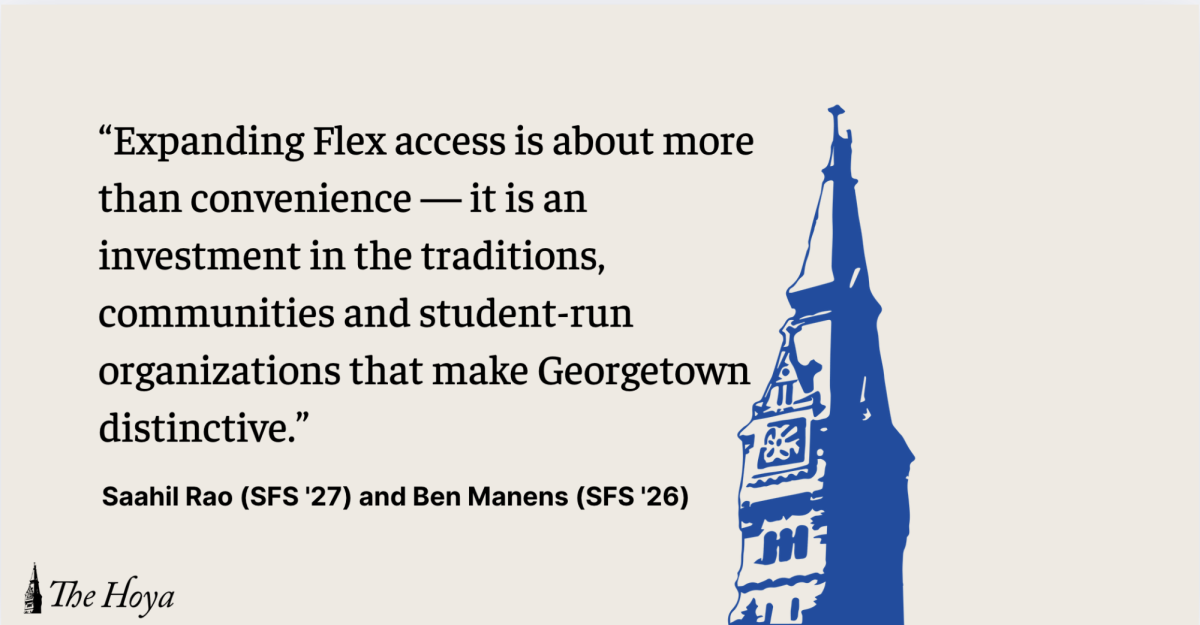On Nov. 21, Georgetown University President John J. DeGioia (CAS ’79, GRD ’95) formally announced that he would step down as president.
During DeGioia’s 23-year presidency, the university strengthened its commitment to academic excellence and took notable steps toward cultivating an inclusive community, including founding the Georgetown Scholars Program (GSP), which supports first-generation and low-income (FGLI) students, in 2004 and addressing Georgetown’s legacy of involvement in slavery. Provost Robert M. Groves has taken the reins as interim president and the university will search for its next president, who will take office in 2026.
The Editorial Board urges the next president to honor DeGioia’s legacy by continuing his work for progressive causes, including affordability and access in admissions, combating racism and supporting residential assistants’ (RAs) fight for a fair contract.
DeGioia made commitments to diversity and inclusion throughout his presidency. During his term, Georgetown became the first Catholic university to open an LGBTQ Resource Center in 2008; launched a working group on slavery, memory and reconciliation, a program to research and identify Georgetown’s role in slavery, in 2015 and founded the Disability Cultural Center, an organization that supports the disability community and culture on campus, in 2022.
While these were and are important steps, FGLI and students of color have reported feeling a lack of inclusion at Georgetown.
The university’s 2020 Cultural Climate Survey, Georgetown’s first-ever survey to examine student experiences, found 76% of white students at Georgetown said they felt part of the campus community, compared to only 43.3% of Black students. Further, 37.5% of Black students reported experiencing prejudice.
The 2021 Cultural Climate Survey found 76% of students with an annual household income greater than $150,000 said they felt a sense of belonging. Alarmingly, only 47% of students with an annual household income below $25,000 shared this same sentiment.
In response, DeGioia said he would work to ensure all students feel a sense of belonging on campus.
“I know that we have the capacity to respond to this challenge –– to do the work required of us to uphold the values and the expectations we have of this community,” DeGioia wrote.
To meaningfully advance DeGioia’s progress, the new administration must expand access to admissions and continue supporting students of color and FGLI students.
In admissions, removing the university’s $75 fee for undergraduate applications, switching to the Common App system and eliminating legacy admissions would promote the goals of affordability and access for prospective students.
The university must continue endowing programs such as GSP, the Community Scholars Program (CSP) and First Fellows program, a fellowship to support first-generation students, to ensure FGLI students can continue to succeed at Georgetown.
Yunji Yun (CAS ’26), a member of GSP, said she hopes the new administration will continue these programs.
“These programs specifically have provided opportunities for FGLI students to thrive academically and create a tight-knit community,” Yun wrote to The Hoya.
The university can specifically support students of color by listening to students’ demands. During DeGioia’s tenure, GU Protects Racists demanded justice following a racist hate crime, yet the university never completely addressed these demands. The Editorial Board urges the new administration to address these ongoing concerns to protect students of color.
The university will conduct the next Cultural Climate Survey in Spring 2025. The new administration must reflect on these results and respond with actionable steps.
The university must also work to ensure student workers receive fair pay for their labor, especially in providing better financial support to resident assistants.
After RAs unionized in April, the university entered contract negotiations with the Georgetown Resident Assistant Coalition (GRAC), the RAs’ union coalition. Five months of negotiations later, unresolved issues such as placement and hiring remain.
Sam Lovell (CAS ’25), the interim chairperson of GRAC, said he views the change in administration as an opportunity to build the relationship between RAs and the university.
“Organizing has presented a powerful opportunity to not only redefine what it means to be an RA on this campus but to also heal a relationship that was in many ways damaged,” Lovell wrote to The Hoya.
The next president must remain receptive to GRAC, ensuring they negotiate effectively and efficiently.
Although DeGioia’s tenure was not perfect, the Editorial Board commends him for meaningful progress in advancing inclusion. Yet, to truly build on his achievements, the next president must approach student inclusion with the seriousness it deserves. Amid the myriad of responsibilities Georgetown’s next president will face, the Editorial Board urges Georgetown’s next president to continue and reaffirm DeGioia’s commitment to fostering a welcoming environment for all students.
The Hoya’s Editorial Board is composed of six students and is chaired by the opinion editors. Editorials reflect only the beliefs of a majority of the board and are not representative of The Hoya or any individual member of the board.



